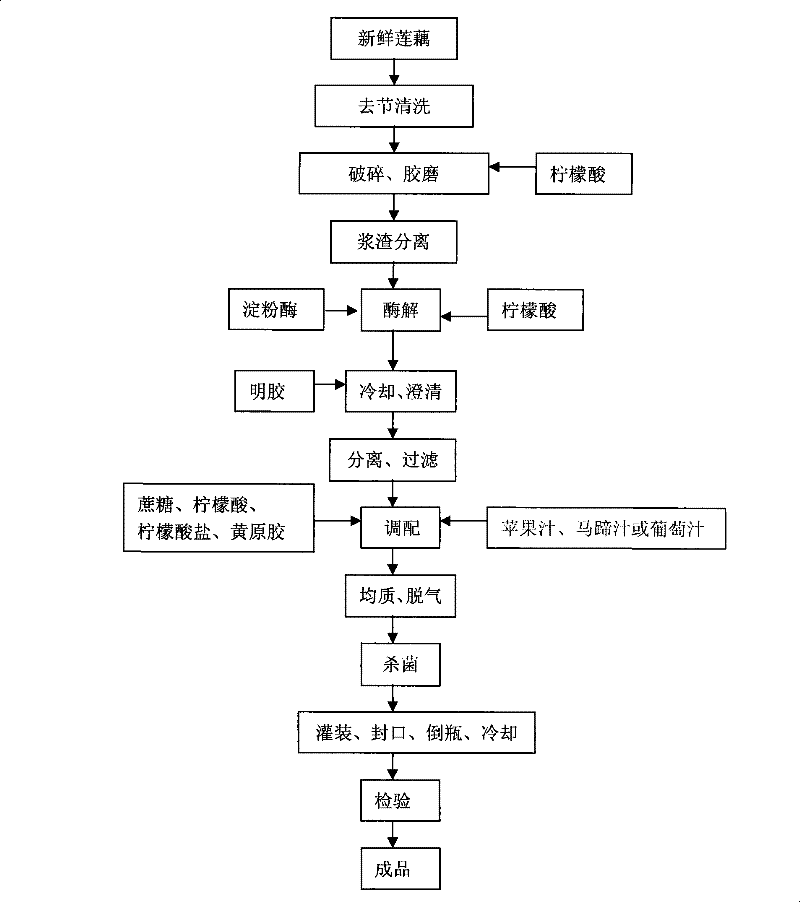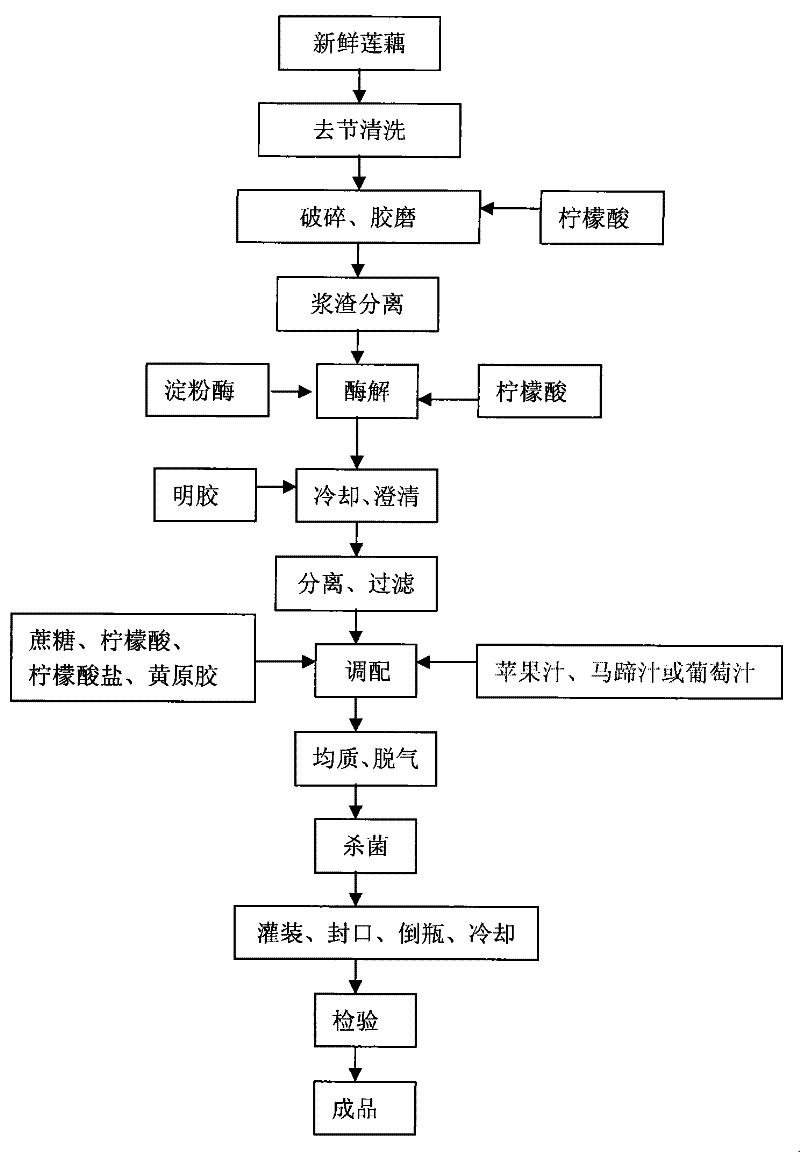Method for processing clear type lotus rhizome juice series drink in PET bottles
A processing method and lotus root juice technology are applied in the processing field of PET bottled clarified lotus root juice series beverages to achieve the effects of reducing sterilization intensity, preventing sedimentation problems, and reducing the defects of secondary sterilization
- Summary
- Abstract
- Description
- Claims
- Application Information
AI Technical Summary
Problems solved by technology
Method used
Image
Examples
Embodiment 1
[0021] Take fresh lotus roots with pure taste, no peculiar smell, no pests, and no rot, and the end lotus roots shall not exceed 20%. Rinse the lotus root with water, cut off the lotus root joints, and then scrub the lotus root surface in clean water until the surface of the lotus root is rust-free, and then put it in a citric acid solution with a mass content of 0.1% for cleaning; send the cleaned lotus root to the crusher for crushing Add the purified water while pressing the lotus root: purified water mass ratio 1:0.8, and then use the colloid mill to obtain the crude lotus root pulp, and add citric acid to the crude lotus root pulp while grinding, and add the citric acid at 0.1% of the washed lotus root mass ; The coarse lotus root pulp after rubber grinding is separated by a continuous separator, and then the lotus root pulp is pressed. The lotus root pulp obtained by pressing is combined with the previously separated lotus root pulp; the lotus root pulp is heated and added...
Embodiment 2
[0023] Take fresh lotus roots with pure taste, no peculiar smell, no pests, and no rot, and the end lotus roots shall not exceed 20%. Rinse the lotus root with water, cut off the lotus root joints, and then scrub the lotus root in clean water until the surface of the lotus root is rust-free, and then put it in a 0.2% citric acid solution for cleaning; send the cleaned lotus root to the crusher for crushing. Add purified water according to the mass ratio of lotus root: purified water at 1:0.9, and then use colloid milling to obtain crude lotus root pulp. While rubber milling, add citric acid to the crude lotus root pulp. Citric acid is added at 0.07% of the washed lotus root mass The crude lotus pulp after rubber milling is used to separate lotus root pulp and lotus root pulp with a continuous separator, and then the lotus root pulp is squeezed, and the lotus root pulp obtained by pressing is combined with the lotus pulp obtained by the separator. Heat the lotus root pulp, add a...
Embodiment 3
[0025] Take fresh lotus roots with pure taste, no peculiar smell, no pests, and no rot, and the end lotus roots shall not exceed 20%. Rinse the lotus root with water, cut off the lotus roots, and then scrub the lotus root in clean water until the surface of the lotus root is rust-free, and then put it in a 0.3% citric acid solution for cleaning; send the cleaned lotus root to the crusher for crushing. Add purified water according to the mass ratio of lotus root: purified water 1:1.0, and then use colloid milling to obtain crude lotus root pulp. While grinding, add citric acid to the crude lotus root pulp. Citric acid is added at 0.03% of the mass of the washed lotus root. The crude lotus pulp after rubber milling is used to separate lotus root pulp and lotus root pulp with a continuous separator, and then the lotus root pulp is squeezed, and the lotus root pulp obtained by pressing is combined with the lotus pulp obtained by the separator. Heat the lotus root pulp, add amylase ...
PUM
 Login to View More
Login to View More Abstract
Description
Claims
Application Information
 Login to View More
Login to View More - R&D
- Intellectual Property
- Life Sciences
- Materials
- Tech Scout
- Unparalleled Data Quality
- Higher Quality Content
- 60% Fewer Hallucinations
Browse by: Latest US Patents, China's latest patents, Technical Efficacy Thesaurus, Application Domain, Technology Topic, Popular Technical Reports.
© 2025 PatSnap. All rights reserved.Legal|Privacy policy|Modern Slavery Act Transparency Statement|Sitemap|About US| Contact US: help@patsnap.com


